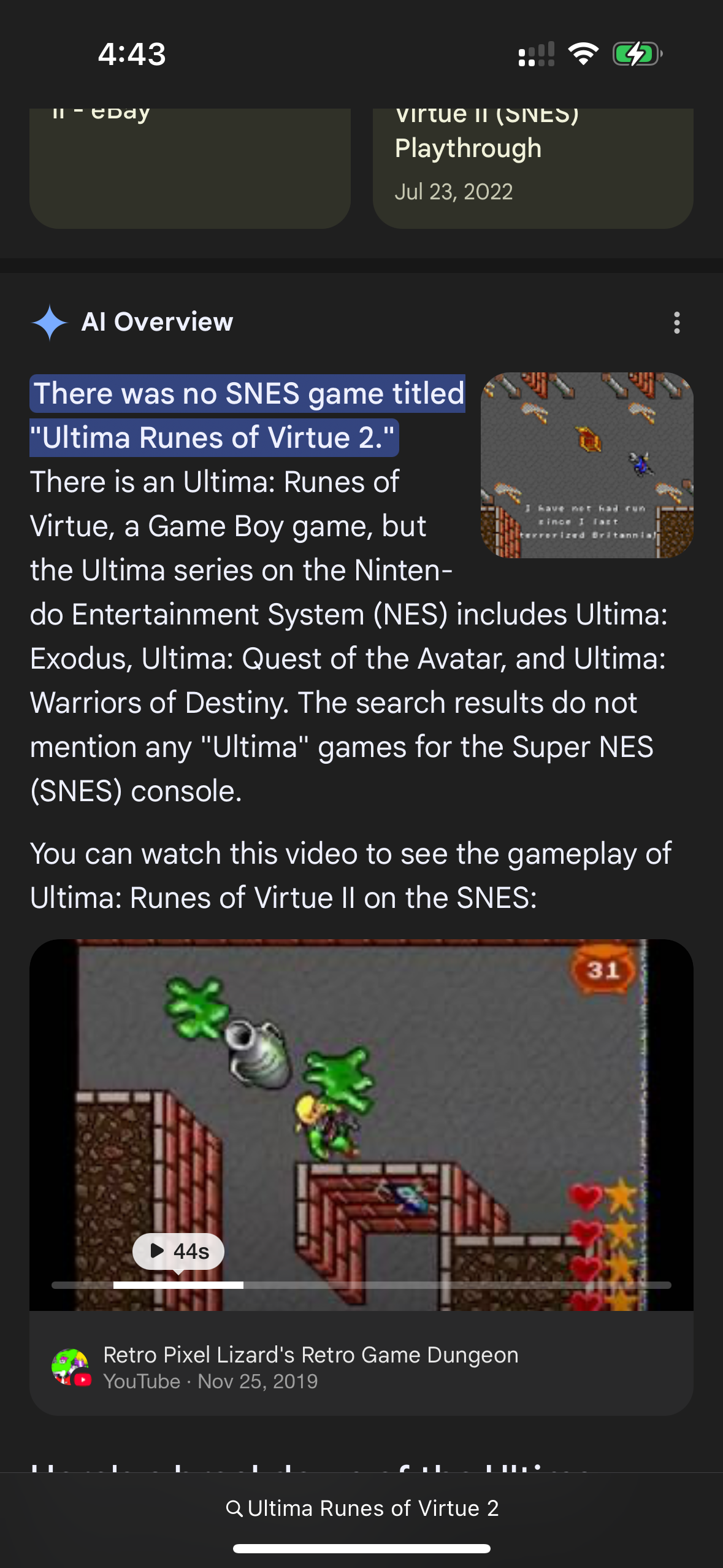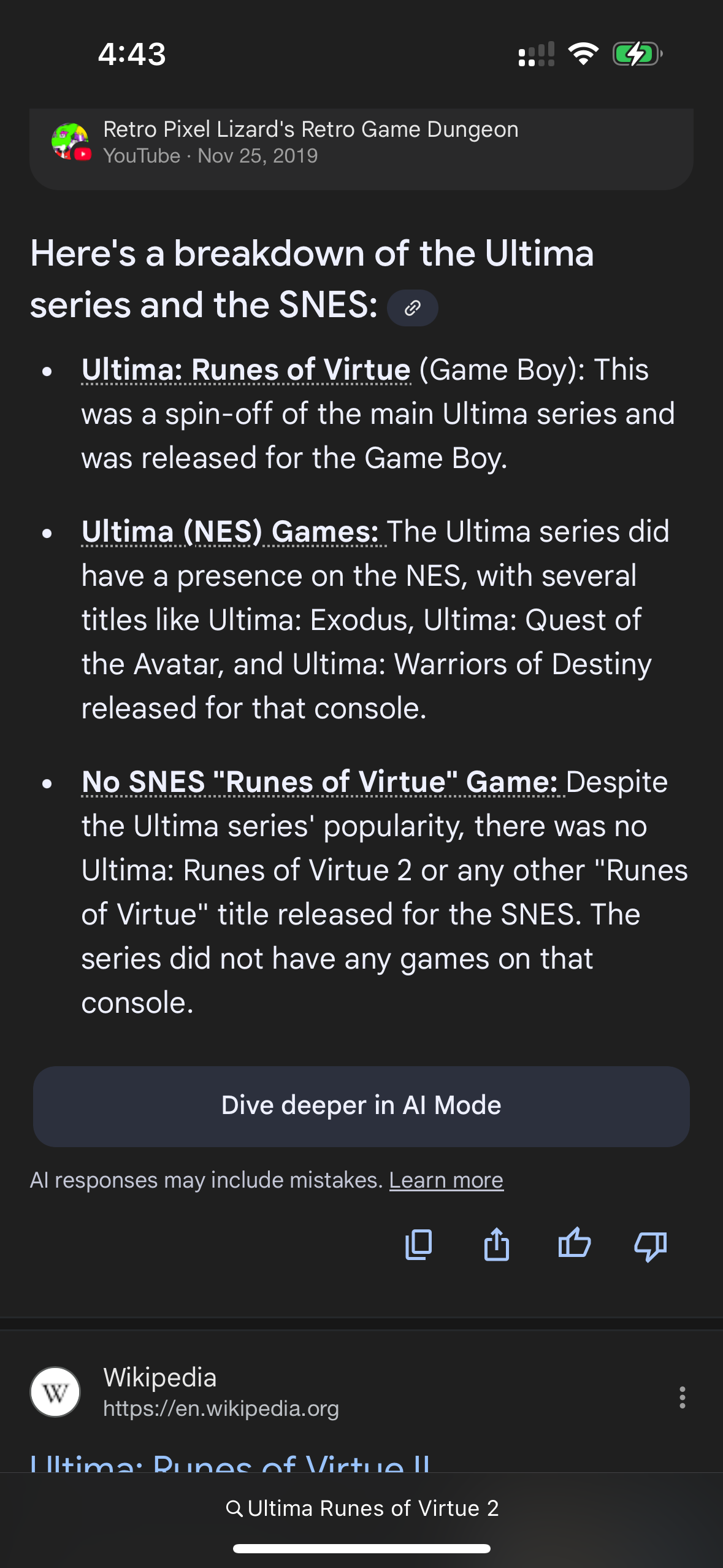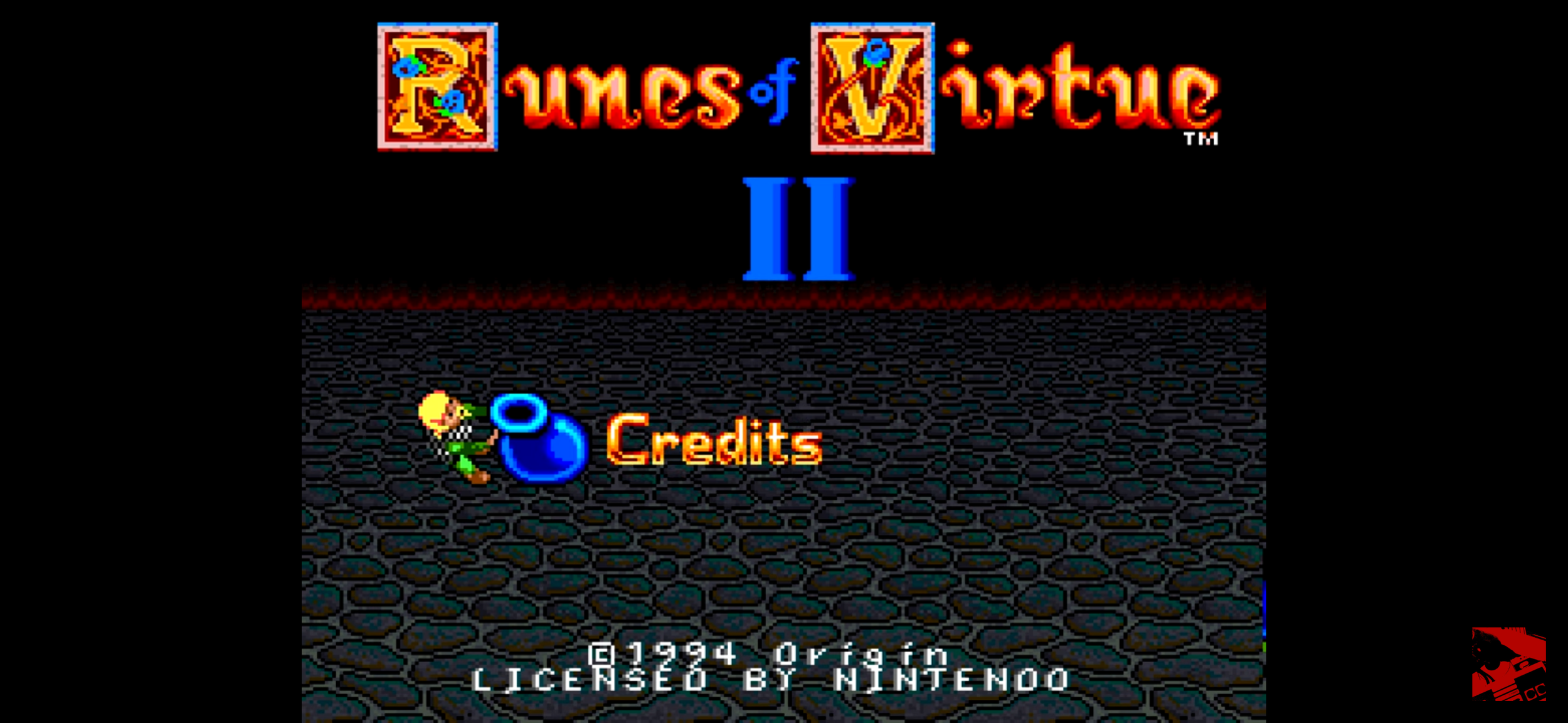Ultima & World-Building in the Computer Role-Playing Game
by Carly A. Kocurek & Matthew Thomas Payne
Grinding through tedium in an RPG can be hypnotic, almost soothing. It also has clear and reachable goals, ticked off at a pace that, compared to real life, is hyperaccelerated. You want money for a new sword? Twenty minutes, tops. You want money for a new car? A year of picking up extra shifts at your after school job (or a year of cutting out the little treats that make life easier, if you’re an adult).
The world that any little digital icons populate is built specifically for them to inhabit. Their space is designed to ease one through certain points or stymie progress when heading in an unintended direction. Reality offers structure as well, but nearly in the same ratio as sword-getting money to car-getting money. The scope makes the experience vastly different. The challenge in real life is being able to step back, to see the broad strokes well enough to navigate (or ignore) the route that those at the apex of society are funneling you through. Unlike most game designers, the goals of oligarchy, fiefdom, or hierarchical castes runs contrary to the masses that people the system (one suspects early MMO designs—where financial incentives were based on bloated playtime—as well as more contemporary whale-catching gatcha mechanics—where artificial challenge gates might nudge you to spend real money—have a parasitical relation to their player bases, as well). No one at the top of contemporary political machinations is trying to grease the path to end game (except maybe Bernie). Once one bumps into politico-socio-economic walls, it can be just as frustrating as when arbitrary knee-high rocks block the path of the digital super-human you’re piloting, who seems quite capable of employing thirty-foot spin-jumps during cutscenes. (Example: landlords are not required to report on-time rent payments that would help boost most people’s credit score. They could. They don’t, because they don’t have to! Why not? To keep you “playing” the game of, well, rent.)
For the generation that grew up along side, rather than inside, the internet, watching it collapse in on itself feels both tragic and inevitable. There is clear microcosmic relationship between the created gameworlds inside RPGs and our modern shift-alt travels through hyperspace: once a gameworld has run its course and you start bumping against the fraying edge of the design, the planned flow cannot really keep up. Currency is devalued, EXP gains are stagnant, and if there were hundreds of collectables that one might stumble across in a large open play-space, once you’re down to only one or two left the chance at finding them without systematically (read: boringly) criss-crossing a now-empty world is virtually nil. At this point, even with a journal full of sidequests, one might seek out the often one-way slide into end-game (that in modern design comes with a metatextual warning that you’re about to pass a point-of-no-return so you could go back and finish those pesky sidequests).
We are deep into the end-game trash-shoot of the internet. Near the end of my time with ULTIMA & World-Building in the Computer Role-Playing Game, I wanted to know which Ultima game, beside Ultima Online, I had played. During my quick phone googling, I received a voicemail. Like all normal people, I waited until it was transcribed to pay attention to it, but was quite confused to see, “Babe, I love you.” This is not the type of message I receive from my spouse, children, or even scam marketers. Additional confusion arouse when I noticed that the icon from the sender was my dad.
When I actually listened to the message, what I heard was was, “Dave I love you and the family.” Confusion settled, I went back to my Ultima search: I knew I had rented it, and that it was on the SNES, and that I didn’t really like it. Maybe I was thinking of Solstice?
A lot of what google presented to me was sourced from “A.I.” And it was wrong. Not dumb or silly but just simply wrong facts. It was unsettling to read “Babe, I love you,” and hear it in my head in my dad’s voice. It’s unsettling to be presented with factually wrong trivia on googling something.
This Ultima book is billed as one about world-building, and if we look at the world we have built online, it is shaped not to facilitate adventure but around the weaknesses inherent in large language model predictive text assertions, automation, and endless scrollability. “Babe, I love you” is 100,000 times more common than “Dave, I love you,” especially as extracted from the garbled mouth of a post-surgery septuagenarian. It’s hard to not assume this is the type of feedback loop that will continue to “train” itself into more and more particularized trash. I put forth to you the theory that Millennial nostalgia won’t be for Rosebud or Winnie Cooper but web rings and Geocities.
Nostalgia plays a large part in any hobbyist retrospective. Ultima was not a huge part of my personal history, and yet it sort of is because, “Despite its famed influence, the first Ultima is also a profoundly experimental title–a point that is often missed precisely because of its lauded centrality to the genre’s formation.” I feel like I knew almost nothing about Ultima, but even still, because Ultima informed the genre so deeply, I know about Ultima. Having even this attenuated knowledge turned the book into too basic of a primer for me. Underneath, I can tell the authors know what they’re doing, but it just doesn’t come across in the core text. If you’ve heard to the rather corny joke about how an airplane’s black box often survives a crash intact and so “they should just make the whole plane out of the black box,” that represents how the Notes section of Ultima & World-Building feels to me. The Notes all have character! I want that voice in the text. I want that level of detail.
In the text, we get something like, “The back of Ultima’s 1981 “Player Reference Card” distributed by California Pacific lists the relative advantages of the different races and vocations.” And my big note in the margin is, “Tell us!”
Though, in fairness, it does turn out that the player cards aren’t that interesting: +10 to INT for Wizard, for example. But why not go deep? A reference in the book cites, “Apple II graphics had some unintuitive rough limitations because certain colors couldn’t be next to certain others”. I AM ERROR would have told me what colors, why, and how Ultima worked around it. That’s what I want from every book about games. It’s not this book’s fault that I want more, especially when the stated goal is, “…to use this book as an opportunity to critically evaluate how the sustained cultivation of a professional persona has benefits and limitations when it comes to understanding the significance of an influential computer game.” That’s accomplished: Lord British is centered while also capably integrated into the larger team that actually accomplished creating the Ultima franchise.
Ultima & World-Building in the Computer Role-Playing Game does what it needs to, but not much else. I am not fully sold on the “and World-Building” part, beyond Ultima being an early template for NPCs and vendors, Avatars and isekai’d players. The worlds of Sosaria and Britannia exist, though. And unlike the promise of cyberspace that arose concomitant with Ultima, these imagined worlds haven’t carcinized into the fever-dreams of dozens of ever-watching large language models.







